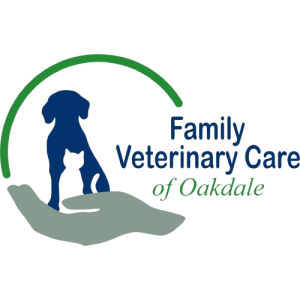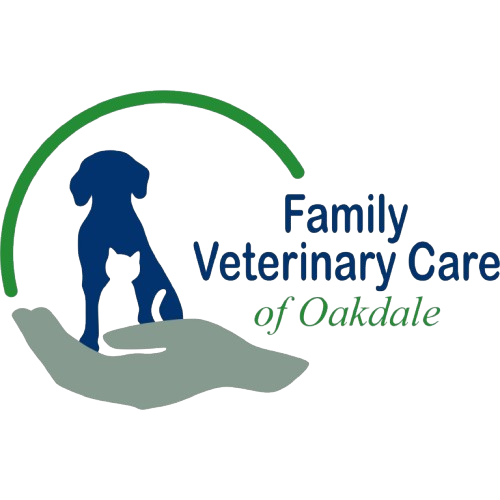The Role of Continuing Education in Veterinary Careers
Because Vet Med Doesn’t Stop at Graduation
Veterinary school provides the foundation for clinical practice, but learning never stops in this profession. Medicine evolves, new technologies emerge, and best practices shift with ongoing research. Whether it’s advancements in surgical techniques, changes in preventive care protocols, or updates in pain management, staying informed is critical for veterinarians at every stage of their career.
At Family Veterinary Care of Oakdale, we believe that continuing education (CE) isn’t just about fulfilling requirements—it’s about becoming a better clinician, improving patient outcomes, and advancing the field of veterinary medicine. Whether you’re a recent graduate or an experienced veterinarian, lifelong learning ensures you remain at the forefront of high-quality care.
Why Continuing Education Matters in Veterinary Medicine
1. Medicine Evolves—So Should You
Veterinary medicine is constantly advancing, and staying current on new treatments, diagnostics, and medical breakthroughs is crucial. Continuing education helps veterinarians:
- Stay updated on new surgical techniques and treatment protocols
- Learn about emerging diseases and evolving drug therapies
- Avoid practicing outdated medicine
For example, pain management protocols have drastically improved over the years, incorporating multimodal approaches and newer medications. Similarly, research into microbiomes has transformed how we treat gastrointestinal diseases, allergies, and chronic conditions【Carve Your Niche in a Competitive Market】.
Veterinary education doesn’t stop with what you learned in school—it requires ongoing adaptation to ensure your patients receive the best possible care.
2. Expanding Your Skills Opens More Career Doors
While many veterinarians start in general practice, continuing education allows for career growth into specialized fields. Some areas of specialization include:
- Rehabilitation & Sports Medicine
- Integrative Medicine (Acupuncture, Chiropractic, Herbal Therapy)
- Advanced Surgery & Dentistry
- Behavior & Fear-Free Certification
If you’re interested in a specialized practice, continuing education is your first step toward carving out a niche. Many veterinarians find that developing a focused skill set improves job satisfaction and career longevity【The Benefits of Running a Niche Practice】.
3. Certifications Can Set You Apart
Veterinarians looking to enhance their expertise and earning potential can pursue additional certifications, which provide specialized knowledge and credibility in the field【4 Certifications to Advance Your Veterinary Career】. Some highly sought-after certifications include:
- Fear-Free Certification – For veterinarians interested in reducing patient stress and improving client communication
- Certified Canine Rehabilitation Practitioner (CCRP) – Focusing on rehabilitation and physical therapy
- ABVP (American Board of Veterinary Practitioners) Certification – Specialization in canine, feline, avian, or exotic species
- Medical Acupuncture for Veterinarians (MAV) – For vets interested in alternative pain management techniques
If you’re unsure where to start, the AAVSB RACE Program provides a list of approved CE providers for veterinary professionals.
How to Make the Most of Continuing Education
1. Choose CE That Aligns with Your Career Goals
Not all CE courses are created equal. Before enrolling, ask yourself:
- Does this course enhance my current clinical skills?
- Will it help me transition into a specialty or leadership role?
- Does it add value to my practice and patient care?
If you’re considering a career shift or specialization, CE can serve as your roadmap to a new opportunity【37 Ways to Use a DVM Degree】.
2. Network While You Learn
CE opportunities, particularly conferences, workshops, and hands-on training events, offer more than just education—they provide valuable networking opportunities. Connecting with fellow veterinarians, specialists, and industry professionals can lead to:
- Mentorship opportunities
- New job offers in specialized fields
- Collaborations with research teams or industry leaders
Many career-changing conversations happen at conferences and workshops, making networking an important part of career growth.
3. Invest in Hands-On Training
While online CE is convenient, practical, hands-on experience is irreplaceable. Consider attending:
- Wet labs for surgical or dental techniques
- Ultrasound workshops for better imaging interpretation
- Emergency medicine simulations for real-world case management
Skills-based CE courses boost confidence and competence, allowing veterinarians to bring new techniques and services back to their practice.
4. Apply What You Learn
The best way to make continuing education stick is to actively apply it:
- Introduce new surgical techniques in your clinic
- Implement updated treatment protocols for chronic diseases
- Train your technicians and colleagues on recent advancements
Teaching others reinforces your own learning while improving patient care and clinic efficiency.
At Family Veterinary Care of Oakdale, We Support Lifelong Learning
We recognize that continuing education isn’t just a requirement—it’s what keeps veterinarians at the top of their game. That’s why we prioritize:
- Mentorship & professional development for early-career veterinarians
- Support for CE opportunities & certifications to help our team grow
- A collaborative environment where learning is encouraged and valued
If you’re looking for a practice that invests in its team and values lifelong learning, explore our career opportunities.
Learning Never Stops in Veterinary Medicine
Veterinary medicine never stands still, and neither should your education. Whether you’re a new graduate or an experienced veterinarian, staying current with CE ensures you provide the highest level of care for your patients while expanding your professional horizons.
At Family Veterinary Care of Oakdale, we’re committed to supporting veterinary professionals in their pursuit of excellence. If you want to work in a clinic that values education, mentorship, and professional development, we’d love to hear from you【Contact Us】.
Further Reading:
- Find a RACE Program Provider – AAVSB
- 37 Ways to Use a DVM Degree – dvm360
- Carve Your Niche in a Competitive Market – dvm360
- The Benefits of Running a Niche Practice – Vet Practice Mag
4 Certifications to Advance Your Veterinary Career – Instinct.Vet











Leave A Comment